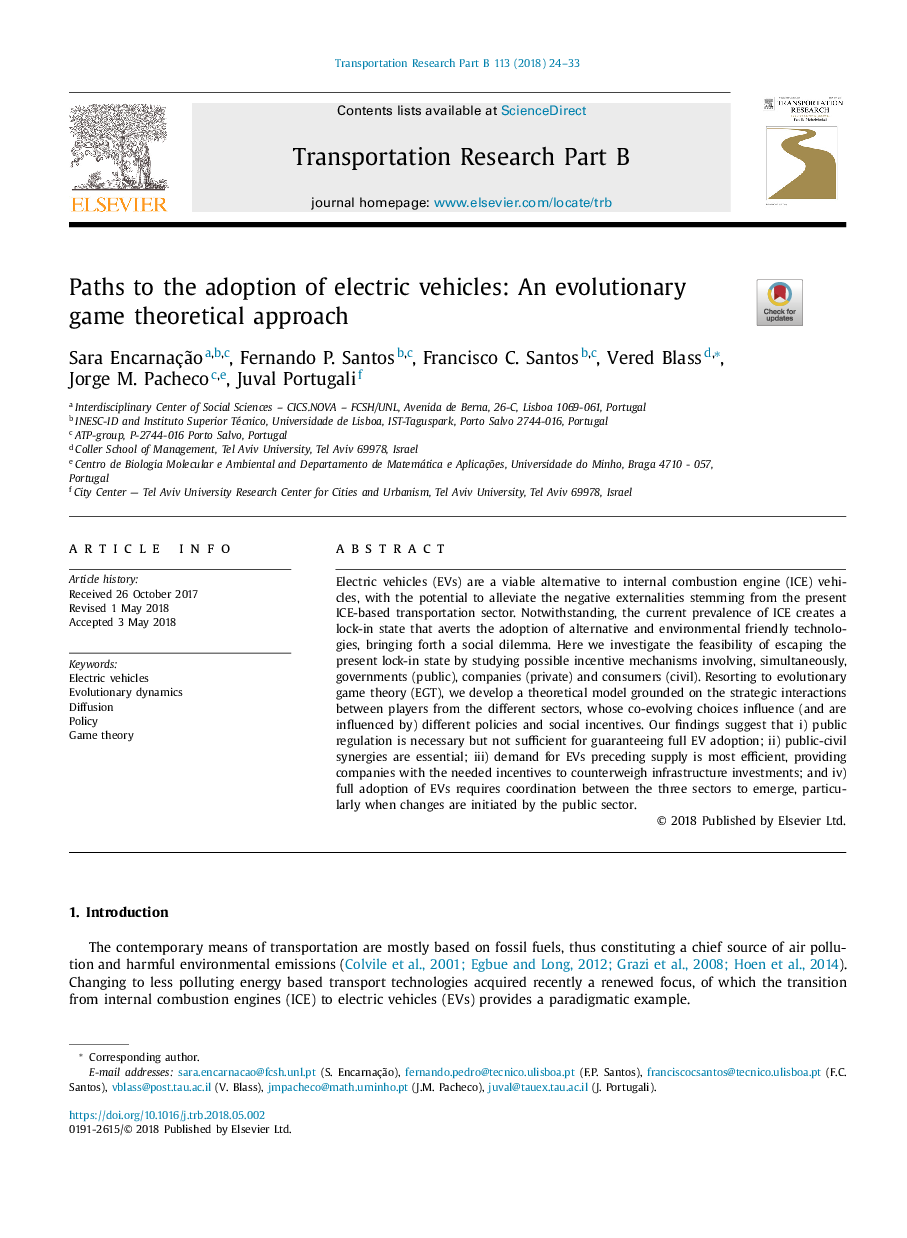| Article ID | Journal | Published Year | Pages | File Type |
|---|---|---|---|---|
| 7538972 | Transportation Research Part B: Methodological | 2018 | 10 Pages |
Abstract
Electric vehicles (EVs) are a viable alternative to internal combustion engine (ICE) vehicles, with the potential to alleviate the negative externalities stemming from the present ICE-based transportation sector. Notwithstanding, the current prevalence of ICE creates a lock-in state that averts the adoption of alternative and environmental friendly technologies, bringing forth a social dilemma. Here we investigate the feasibility of escaping the present lock-in state by studying possible incentive mechanisms involving, simultaneously, governments (public), companies (private) and consumers (civil). Resorting to evolutionary game theory (EGT), we develop a theoretical model grounded on the strategic interactions between players from the different sectors, whose co-evolving choices influence (and are influenced by) different policies and social incentives. Our findings suggest that i) public regulation is necessary but not sufficient for guaranteeing full EV adoption; ii) public-civil synergies are essential; iii) demand for EVs preceding supply is most efficient, providing companies with the needed incentives to counterweigh infrastructure investments; and iv) full adoption of EVs requires coordination between the three sectors to emerge, particularly when changes are initiated by the public sector.
Related Topics
Social Sciences and Humanities
Decision Sciences
Management Science and Operations Research
Authors
Sara Encarnação, Fernando P. Santos, Francisco C. Santos, Vered Blass, Jorge M. Pacheco, Juval Portugali,
